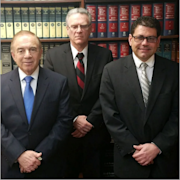Ads
related to: Estate & Probate LawyerHelp You to Probate Estate. A 98.7% Client Satisfaction Rating. Get Expert Advice Today! Free, Confidential Probation Lawyer Locator. Save Time - Submit Your Case Details Now!
No Appointment, No Waiting, No Hassle. Ask a Bar-Certified Probate Lawyer Online Now.
Estate Planning Issues? Get A Free Consultation With An Experienced Estate Planning Lawyer. Estate Attorney. Free Consultation. Talk To A Local Expert! (Recommended)
Review Attorney Profiles, Ratings & Cost, Then Choose. Describe Your Case Now!
Search results
People also ask
What does a probate lawyer do?
Do I need a probate lawyer?
Can a probate attorney help with estate planning?
What is the difference between a probate and estate planning attorney?
Probate is the formal legal process that gives recognition to a will and appoints the executor or personal representative who will administer the estate and distribute assets to the intended beneficiaries. The laws of each state vary, so it is a good idea to consult an attorney to determine whether a probate proceeding is necessary, whether the ...
Sep 19, 2023 · Probate lawyers are also called estate attorneys. These attorneys work in an area of law that helps clients through the probate process. They help nonlawyer clients with their duties associated with an estate. They assist their clients in fulfilling roles as: Administrators. Personal representatives. Executors of estates.
- Living Trust
- Joint Ownership
- Pay-On-Death (POD) Accounts
- Transfer-On-Death (TOD) Accounts
- Life Insurance
- Retirement Accounts
- Gifts
In a living trust, you appoint a trustee to manage your assets for the benefit of designated beneficiaries. Should you pass away, the trustee distributes the assets held in this trust directly to your beneficiaries, eliminating the need for probate.
When two or more people own an asset together with the “right of survivorship,” it means upon the death of one owner, the surviving owner(s) automatically inherit the deceased owner’s share without going through probate. There are several types of joint ownership: 1. Joint Tenancy with Rights of Survivorship (JTWROS).Here, if one owner passes away,...
POD accounts are a type of bank account that has a named beneficiary. Upon your death, the designated beneficiary can claim the assets held in the account directly.
TOD accounts are similar to POD but for securities, such as stocks, bonds and mutual funds. The designated beneficiary inherits the securities in the brokerage accounts without probate.
By designating a person or entity as the beneficiary of your life insurance policy, the death benefit will bypass probate and go directly to them. The only exception is if you outlive the designated beneficiary or if the estate is named as the beneficiary, as this would send the proceeds through probate.
IRA, 401(k) and other retirement accounts allow you to name beneficiaries. Upon your death, these assets gets transferred directly to the beneficiaries without passing through probate.
One easy way to avoid probate is to give away assets, while you’re still alive. However, be aware of potential tax implications. In 2023, you can give up to $17,000 in money or property to a single person without owing gift taxes. An estate planning lawyer can help you identify ways to facilitate the transfer of most or all of your property outside...
A probate attorney is a state-licensed lawyer who can help the Executor of a Will (if one was appointed) or the beneficiaries of an estate get through probate as they work to settle an estate. Their services could typically include everything from finding and inventorying assets of the estate, to understanding and paying all the debts the ...
Once you've decided on a lawyer, learn how to maintain a successful working relationship in Nolo's article, Working With a Probate Lawyer. Probate attorneys work on financial and legal matters, of course, but probate is also a very personal process. Use these tips to find the right probate lawyer.
Start exploring our listings of probate lawyers near you today. Compare probate attorneys on Justia. Comprehensive lawyer profiles including fees, education, jurisdictions, awards, publications and social media.
By Mary Randolph, J.D. · UC Berkeley School of Law. The probate process begins when you ask the probate court to be appointed as executor or personal representative. Next, you'll gather the deceased person's property and open a bank account in the name of the estate. You'll then pay debts and taxes.

























